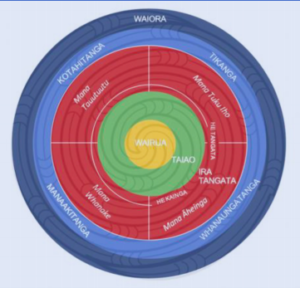In 2017, there was a change of government in New Zealand. At the State Opening of Parliament after the election, the Speech from the Throne announced a new vision for the country’s economic policy: “We need to move beyond narrow measures and views of value and broaden the definition of progress. The economic strategy will focus on how we improve the wellbeing and living standards of all New Zealanders.”
As the government of New Zealand worked to develop the world’s first Wellbeing Budget, they began by using the OECD Wellbeing Framework to understand relevant dimensions for wellbeing.
However, the government recognised that much of our contemporary understanding of economic progress and wellbeing, including the OECD’s framework, has been informed by Anglo-Saxon philosophical traditions
Therefore, the government also worked to ensure that diverse communities were able to contribute their voices to defining wellbeing in New Zealand, based on their cultural perspectives, values and knowledge systems
This involved an initiative to develop a vision of wellbeing, based in mātauranga Māori, the knowledge of the country’s Indigenous population. The name for this Wellbeing Framework is He Ara Waiora, meaning “pathway to wellbeing”.

The framework demonstrates relationships between different elements of wellbeing. At the centre is Wairua (spirit), which reflects the values, beliefs and practices that are the foundation or source of wellbeing. Surrounding the spirit (in green) is Taiao (the natural world/environment), which is presented as the foundation and source of social wellbeing.
The next circle, in red, is Ira Tangata (society), which encapsulates human activities and relationships. The concept of mana (power) is seen as vital for wellbeing, with people thriving when they are empowered to grow and develop, connect with others and have the resources they need to flourish.
The outside circles (blue) present principles to guide how people should work together to achieve wellbeing. These emphasise the importance of coordination and alignment, working in partnership and according to the right processes, promoting collective and strength-based actions, protecting and promoting empowerment, and stewardship of the environment.
Find out more here.
Find out more:
the discussion?
Let us know what
you would like
to write about!
